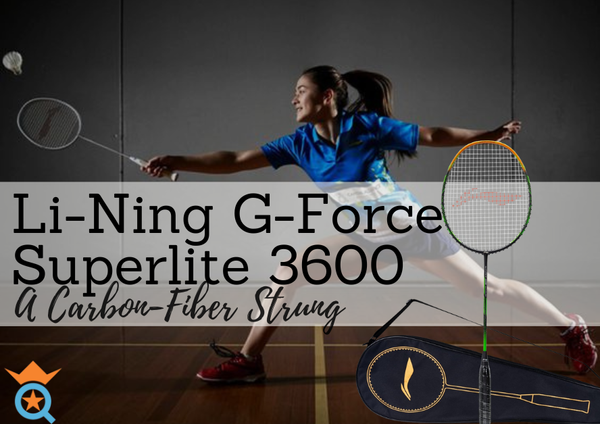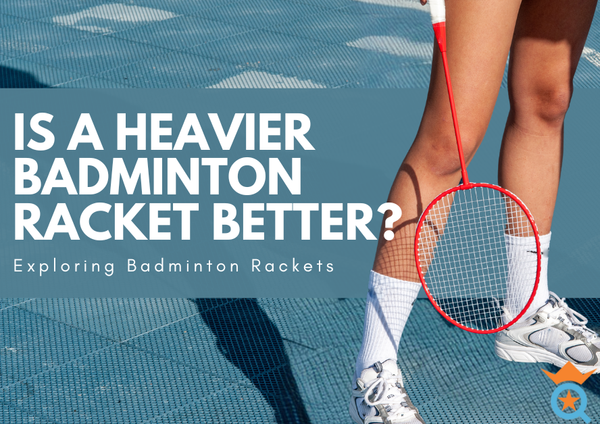Hey tennis enthusiasts! Have you ever wondered how crucial it is to pick the right tennis ball for your game?
Just like choosing the perfect racket or shoes, selecting the appropriate tennis ball can make a significant difference in your performance and overall playing experience.
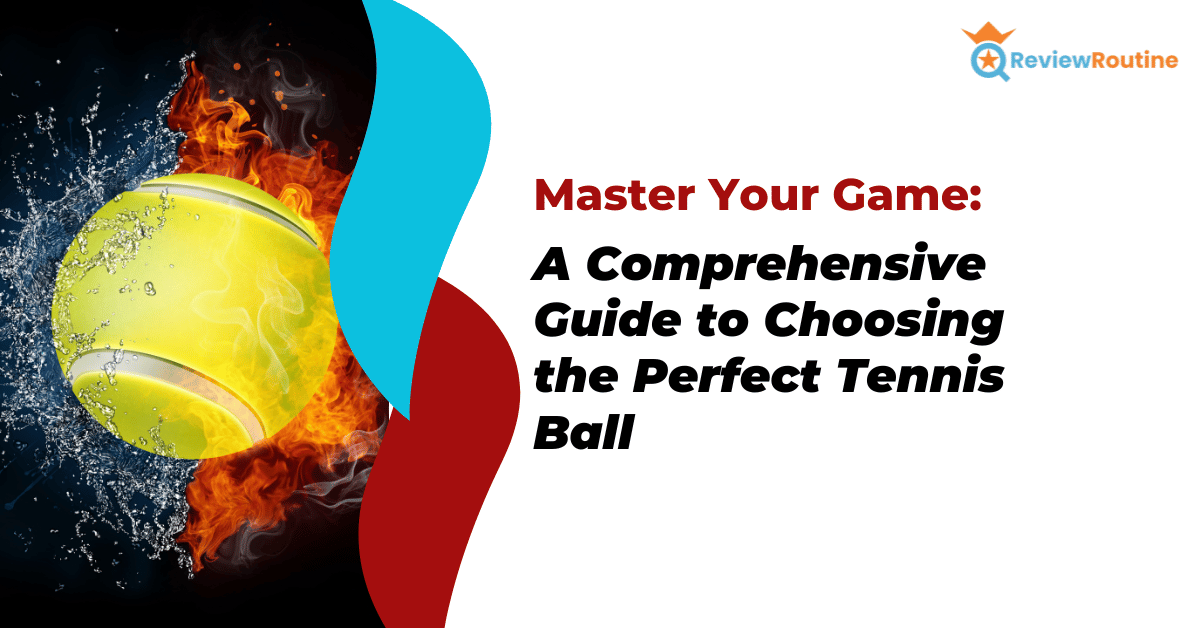
In this article, we'll discuss the importance of picking the right tennis ball and the factors you should consider during the selection process.
Importance of Choosing the Right Tennis Ball
Selecting the right tennis ball is essential for multiple reasons. First, different types of balls are designed to cater to various court surfaces and conditions, which can impact your game.
Using the wrong tennis ball can lead to inconsistent bounce and speed, making it harder for you to play effectively.
Second, the right tennis ball can help you improve your skills and technique as you practice and compete.
Finally, choosing a suitable ball for your skill level ensures that you're not overwhelmed or held back by the ball's performance.
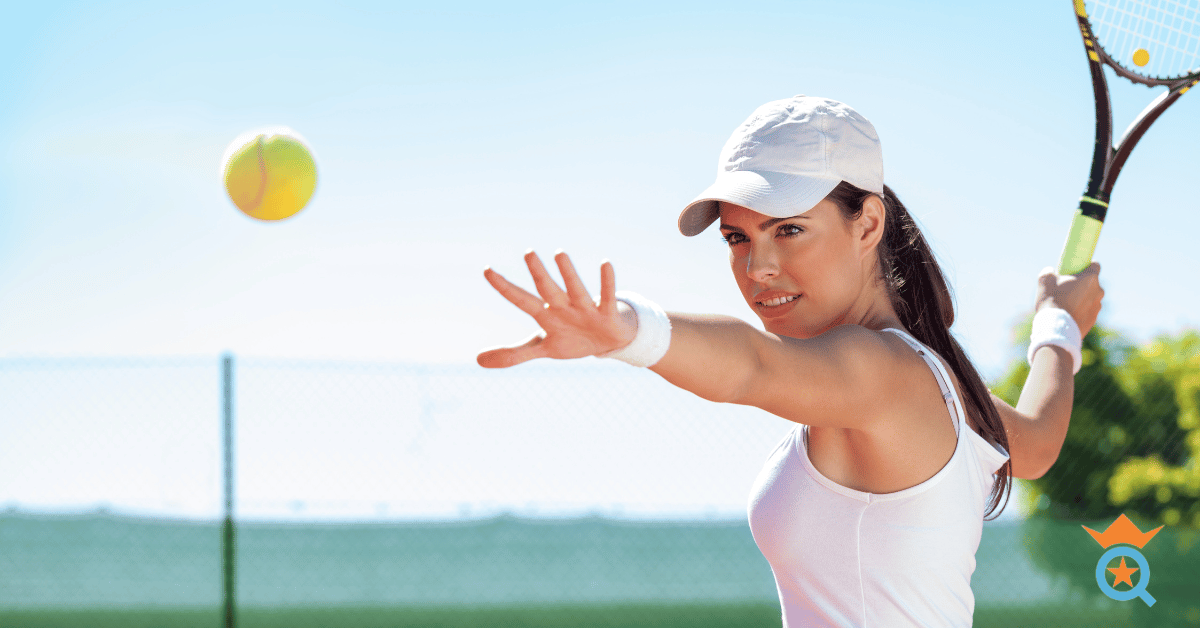
Factors Influencing Tennis Ball Selection
Several factors come into play when deciding which tennis ball is best for you. Let's take a quick look at some of the key considerations:
- Court surface: Hard, clay, and grass courts each have unique characteristics that require specific types of tennis balls. Make sure to choose a ball that's designed for the surface you'll be playing on.
- Skill level: Are you a beginner, intermediate, or advanced player? Your skill level should influence the type of ball you select. Beginners may benefit from softer balls, while more advanced players might prefer extra duty or high-performance balls.
- Playing style: If you have a powerful serve or an aggressive playing style, you may need a more durable ball that can withstand your shots. On the other hand, if you're a finesse player who relies on touch and control, a softer ball might be more suitable.
- Altitude: Playing at high altitudes can affect the ball's bounce and flight. If you're playing in a high-altitude location, it's important to choose a tennis ball specifically designed for those conditions.
Now that you're familiar with the importance of choosing the right tennis ball and the factors to consider, let's dive into the various types of tennis balls available and how they cater to different playing situations.
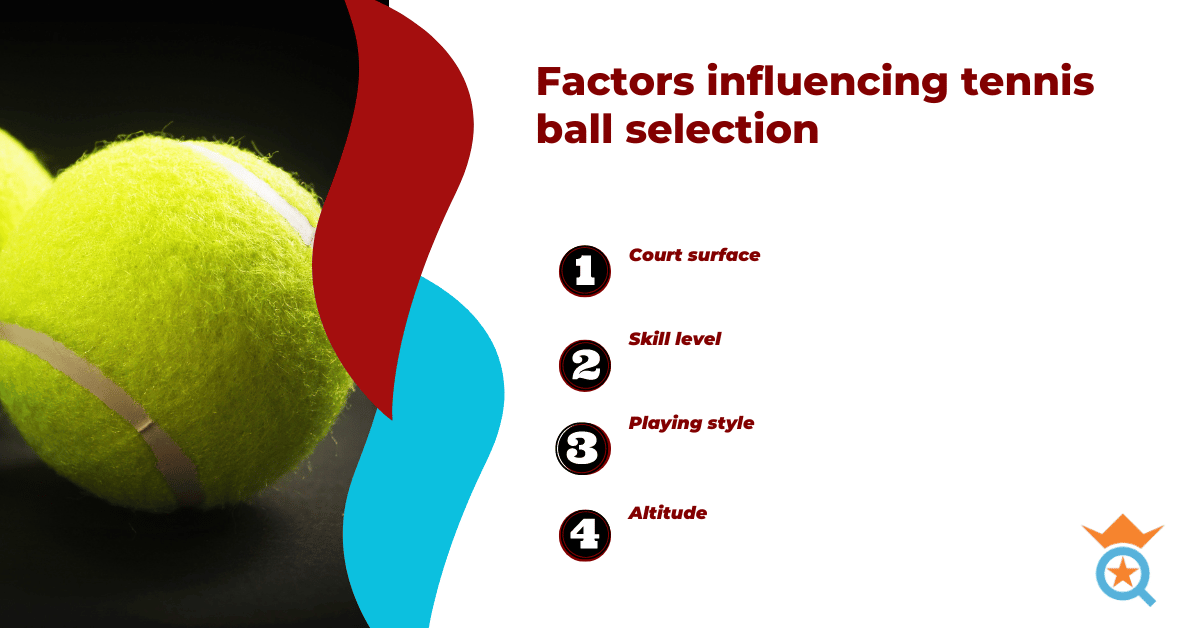
Extra Duty Tennis Balls
If you're a tennis enthusiast who loves playing on hard court surfaces, then extra-duty tennis balls are just the thing for you. These balls have a tougher and more resilient felt cover, making them ideal for the rougher nature of hard courts.
With their sturdy construction, extra-duty tennis balls not only last longer, but also maintain their bounce and playability better than regular-duty balls. They might cost a bit more, but trust us, it's a worthy investment for all you hard-court warriors out there.
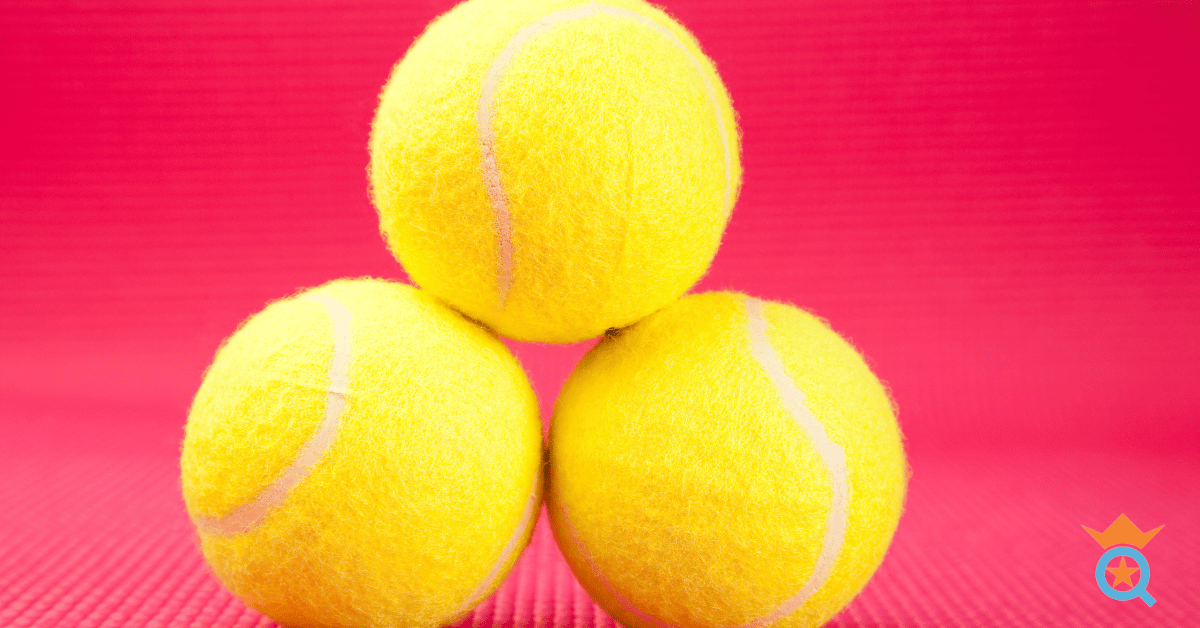
The improved performance and durability of these tennis balls can truly elevate your game.
So, next time you're gearing up for a match, make sure to have extra-duty tennis balls in your bag!
Construction and materials:
Extra-duty tennis balls are built to withstand the rigors of hard court play. They typically feature a thicker, more durable felt covering made from a blend of wool and nylon. This heavy-duty construction not only helps the ball withstand abrasion but also provides consistent bounce and feel on the court.
Ideal for hard court surfaces:
If you frequently play on hard courts like asphalt or concrete, extra-duty tennis balls are a perfect choice. The tough felt covering ensures that the ball maintains its shape and bounces even on the rough, unforgiving surfaces of hard courts. By using the appropriate ball for the court type, you can improve your game and protect your investment in tennis equipment.
Durability and performance:
When it comes to performance and longevity, extra-duty tennis balls shine. Their heavy-duty construction makes them more resistant to wear and tear, so they can last longer even when subjected to high-impact shots from powerful players. Additionally, extra-duty balls maintain a consistent bounce and flight, enabling you to play with confidence and precision.
Regular Duty Tennis Balls
For tennis players who prefer the finesse and tactics of clay courts or indoor courts, regular-duty tennis balls are the way to go. These balls are designed with a lighter and more flexible felt cover that allows them to perform exceptionally well on softer court surfaces.
The regular-duty tennis balls provide optimal bounce and control, making it easier to execute those tricky spins and slices. Not only do they enhance your playing experience on clay and indoor courts, but they also help reduce wear and tear on softer surfaces.
By choosing regular-duty tennis balls, you can ensure that your game stays sharp and your favorite courts remain in great condition for many matches to come.
On the other hand, Regular Duty Tennis Balls offer their own unique set of advantages for players who frequent softer court surfaces.
Construction and materials: Regular-duty tennis balls are designed with a thinner, more flexible felt cover, which is composed of wool and nylon fibers. This lighter construction allows the ball to better adapt to the characteristics of clay or indoor courts while maintaining its shape and bounce.
Ideal for clay and indoor courts: These tennis balls are a perfect match for players who spend most of their time on clay or indoor courts. The regular duty felt is less abrasive and better suited for softer surfaces, reducing the likelihood of the ball picking up extra clay or dirt that could affect its performance.
Performance on different surfaces: Regular-duty tennis balls exhibit optimal performance on clay and indoor courts, providing a consistent bounce and feel. While they can still be used on hard courts, their thinner felt cover may wear down more quickly, affecting their durability.
By selecting the right tennis ball for your preferred playing surface, you can enhance your overall experience and improve your game.

Pressurized or Pressure-Less Tennis Balls?
Some tennis balls are pressurized because they contain compressed gases. A pressurized ball bounces more than a pressureless ball.
Pressurized balls are also heavier, quicker, and can handle spin better than pressureless balls. The pressed balls lose a bit of pressure with use and are not going to bounce as quickly as they did before.
The package needs to indicate whether the balls are pressure-filled or pressureless.
Characteristics and Benefits
Pressurized tennis balls are filled with air or nitrogen, providing them with a high-energy bounce that many players find ideal for competitive play. This internal pressure results in a more responsive and faster ball, which can lead to exciting, fast-paced rallies and matches.
Drawbacks and Lifespan
While these balls offer several advantages, they do come with some downsides. Over time, pressurized tennis balls tend to lose their internal pressure, causing them to become less lively and bouncy. This can result in a shorter lifespan compared to pressureless tennis balls, requiring more frequent replacements.
Uses in Competitive Play and Tournaments
Pressurized tennis balls are commonly used in professional tournaments and competitive play due to their performance characteristics. Their lively bounce and responsiveness make them a preferred choice for players seeking an edge in their game.
By understanding the qualities of pressurized tennis balls, you can make an informed decision about whether they are the right fit for your playing style and preferences.
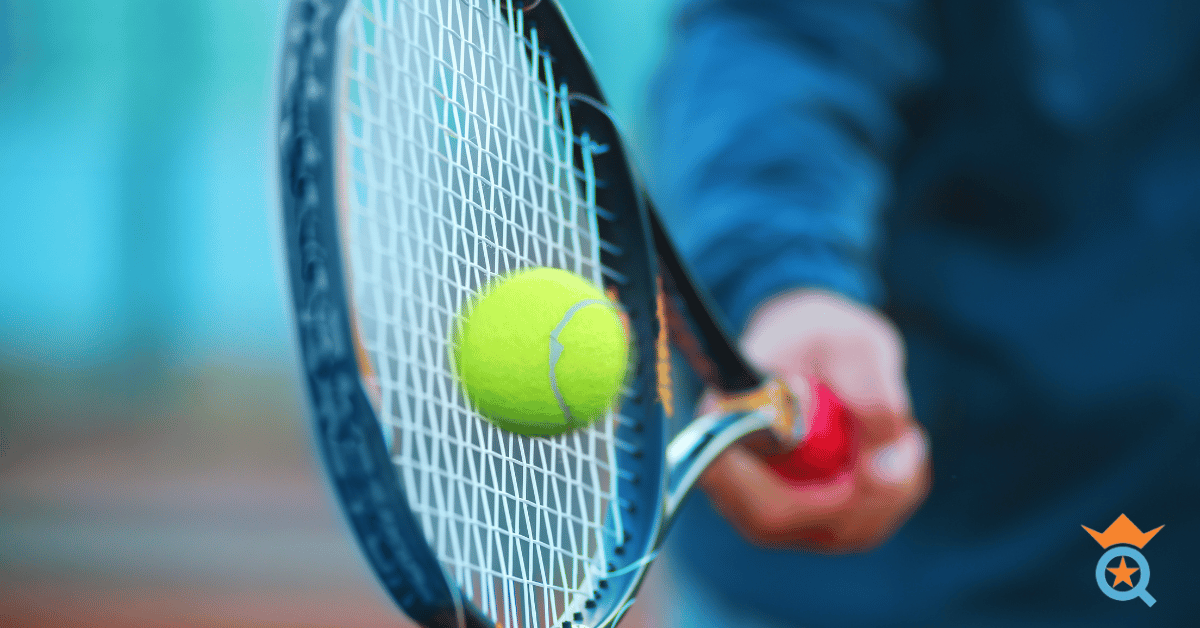
High Altitude Tennis Balls
When it comes to playing tennis at higher elevations, it's crucial to have the right equipment, and that includes high-altitude tennis balls. These specially designed balls are made to perform optimally in environments above 3,500 feet.
The difference in air pressure at higher altitudes can cause regular tennis balls to bounce too much and fly too fast, making it challenging to control your shots.
High-altitude tennis balls, on the other hand, have a lower internal pressure to compensate for the thinner air, ensuring a more consistent bounce and better playability.
So, if you're planning to hit the courts in the mountains or any high-altitude location, don't forget to pack a set of high-altitude tennis balls to make the most of your game.
Design and construction
High Altitude Tennis Balls have a unique construction to accommodate the thinner air and reduced air pressure found at higher altitudes. They are pressurized differently than regular tennis balls, resulting in a slightly less bouncy and more controlled response.
Optimal performance in high-altitude environments
These balls are ideal for players who live or compete in areas with an elevation of 4,000 feet or more above sea level. They help maintain a proper bounce and playability that would otherwise be lost with regular tennis balls at such heights.
Factors to consider when playing in high altitudes
When playing in high-altitude environments, it's important to take into account the reduced air pressure and its impact on ball behavior. High Altitude Tennis Balls are designed to mitigate these effects, allowing players to enjoy a more consistent game.
If you find yourself playing in high-altitude locations, these specialized tennis balls can make a noticeable difference in your overall experience on the court.
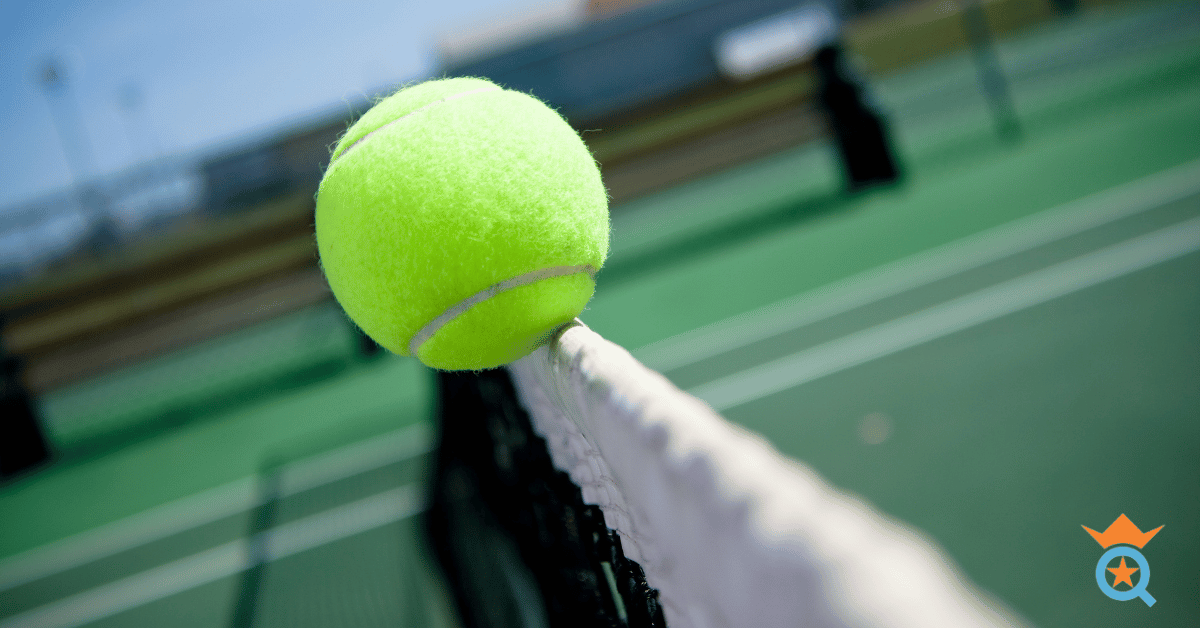
Foam and Softer Tennis Balls
Foam and softer tennis balls offer a unique playing experience tailored to the needs of beginners, children, and those looking to refine their technique. These balls have a lighter weight and softer exterior, which provide a gentler impact and reduced risk of injury during play.
As they move slowly through the air, players can better focus on honing their skills and mastering their strokes.
Features and Benefits
- Gentle impact: These balls have a softer exterior, reducing the risk of injury and making them ideal for children and beginners.
- Improved control: The slower speed and lighter weight of foam and softer tennis balls provide better control for players still learning the game, allowing them to focus on technique.
- Versatility: These balls can be used both indoors and outdoors, making them a versatile option for various environments.
- Quiet play: Foam and softer tennis balls produce less noise, perfect for play in noise-sensitive areas or for not disturbing neighbors during practice sessions.
- Confidence-building: For beginners, using foam or softer tennis balls can help build confidence in their skills and encourage them to continue playing and improving.
Foam and softer tennis balls offer unique advantages for children, beginners, and those looking to focus on improving their skills and technique. With their gentle impact, improved control, and versatility, these balls are an excellent addition to any tennis player's collection.
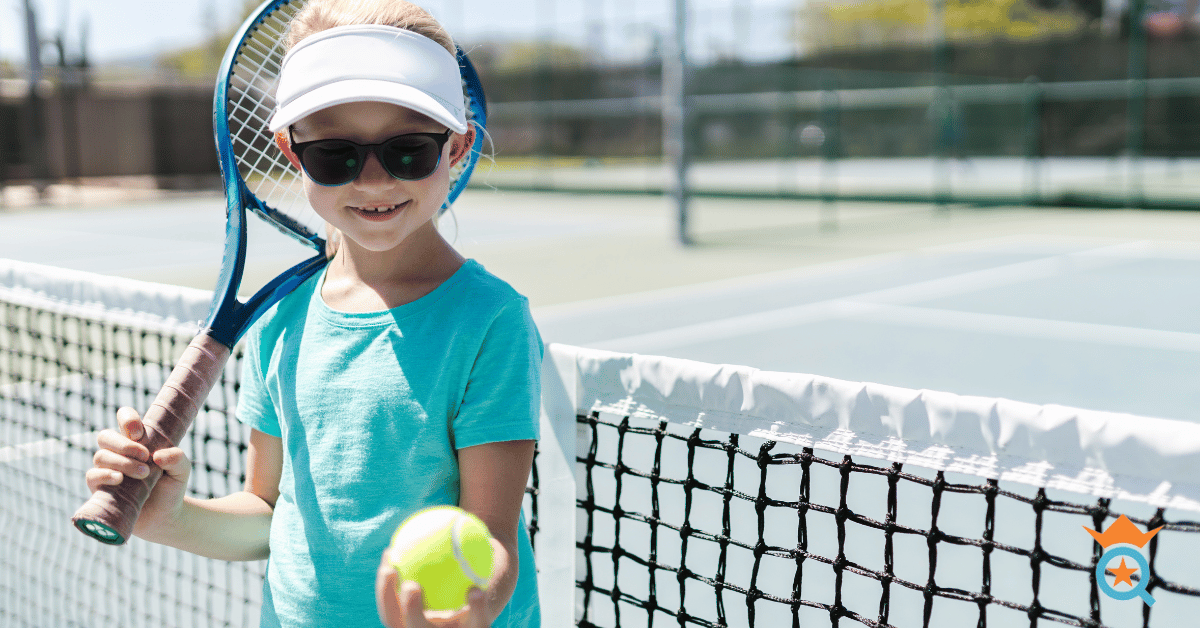
Best Tennis Balls for You: Recreational, Championship, or Professional?
The most prominent manufacturer of tennis balls offers the following basic quality levels: recreational, championship, and professional. The Beginner tennis ball is considered recreational and is intended for use as a practice ball in balls or hoops when preparing for a stroke.
Recreational balls are intended to be used for practice purposes rather than match play because many teams will not allow the use.
The Championship ball is an upgrade and is suitable for league match play because it gives an easier and bouncer feeling to intermediate players.

Types of Tennis Balls
The other crucial factor to be considered while picking tennis balls is the differentiation between the pressurized tennis ball and the pressureless ball. Pressureless balls are used for learning, practicing, and leisure.
This bouncing action is achieved by the rubber shell structure and not the internal air. Pressured ball bounce won't be lost as easily as normal balls and actually increases bounce in the same way as the inner feeling fades.
Many players are happy to enjoy pressureless ball longevity while others think it is lighter and difficult to play.
A pressurized ball is a professional tennis ball used by players and is more common.
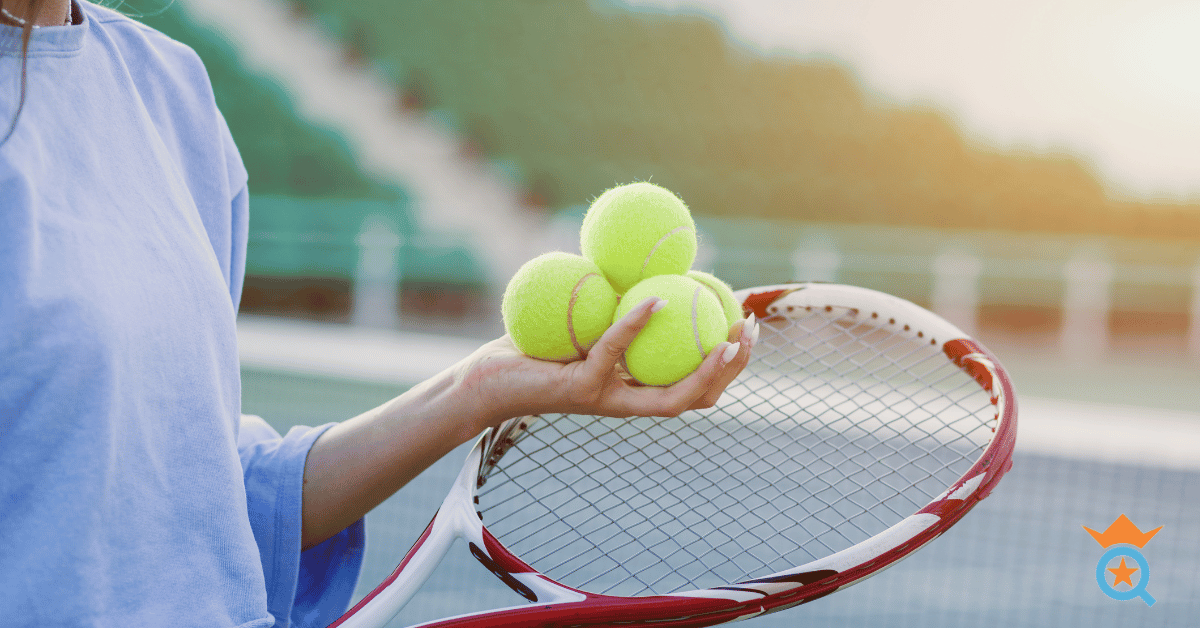
The Bottom Line
Selecting the right type of tennis ball is essential for an optimal playing experience, as it greatly influences both performance and enjoyment. From extra duty and regular duty balls to pressurized and high altitude balls, each type has its unique characteristics and benefits that cater to different court surfaces and playing conditions.
For beginners, children, and those focusing on improving their skills, foam and softer tennis balls provide a gentle and controlled environment. Remember to consider factors such as skill level, playing style, court surface, and personal preferences when choosing the ideal tennis ball for your game.
With the right tennis ball in hand, you'll be well on your way to elevating your performance, enhancing your skills, and enjoying the sport to its fullest potential.






